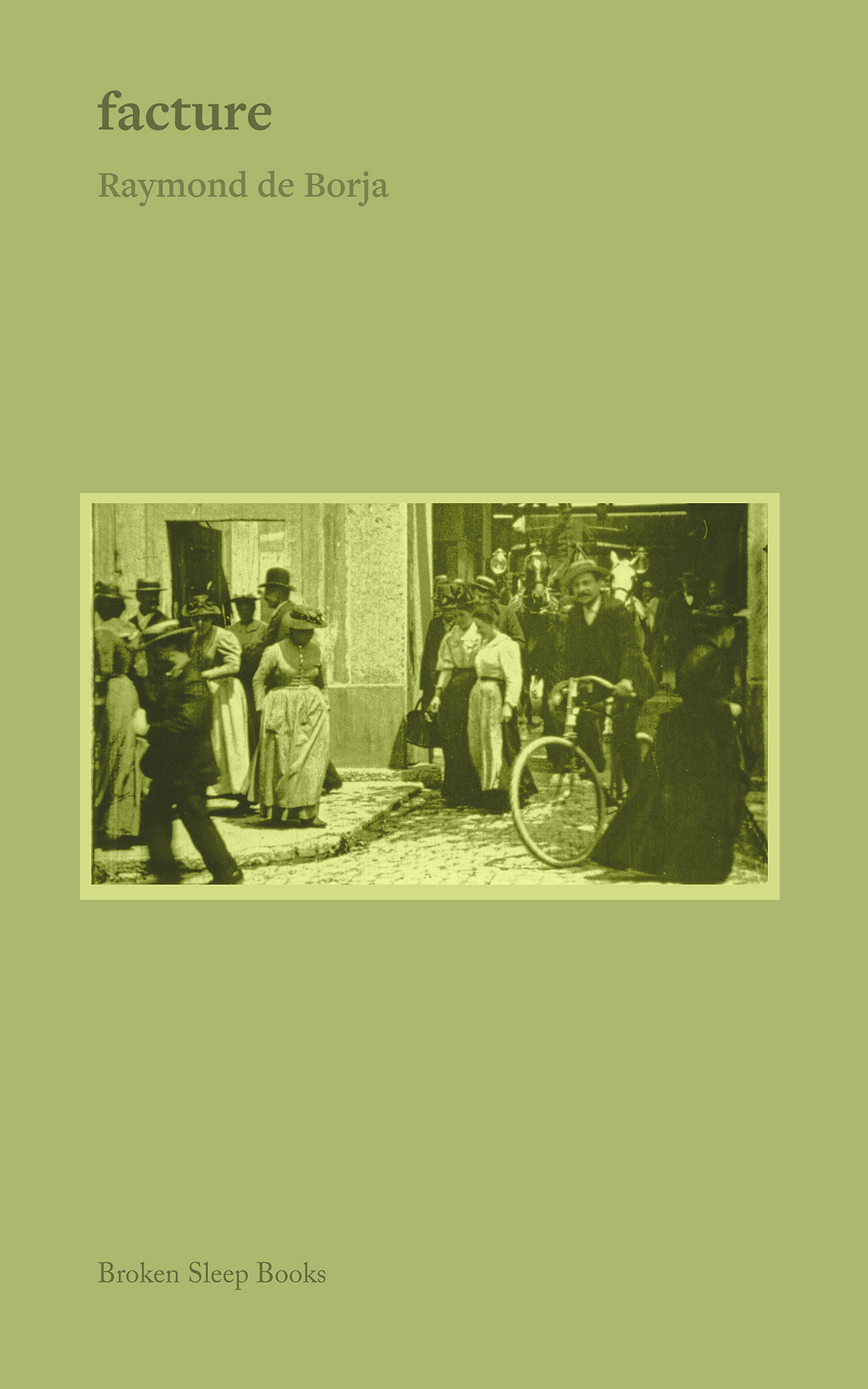Released February 29th, 2024 // 82 pages // 978-1-915760-37-1 // RRP: £9.99
Raymond de Borja’s facture is an inventive book, both literary and wondrously attuned to the most minute subtleties. The poems in facture are uncannily cohesive, each a small sculpture, a little engine. De Borja’s poems speak through the history of the art world, the history of art theory, and an acute sense of the material world as well. De Borja’s work feels in service of a larger project which we could call the making of art, art which emerges through the work of one’s hands and mind. There is a kind of tenderness toward the poet’s and reader’s body in these poems, a kind of care and compassion in relation to craft, and in the relation of writing to the world.
PRAISE for facture:
In conversation with cultural figures as varied as Agnes Martin, On Kawara, Walter Benjamin, Guy Debord and Eva Hesse, Raymond de Borja’s facture exists snugly between the interstices of prose and poetry, rhetoric and lyric. 'I want our poem to have a face. It needs a way out of it' writes de Borja in 'What of Our Renewed Interest in Utopia' and the poetic face seen by this reader is one craggy with wonder, verve, and brass. This poetry is a broken machine fragmented into erudite perfection. facture desires to be nothing but itself, and de Borja’s poems linger deep beyond the breadth of the page. You can’t go home again, no, but luckily you don’t want to.
— Jeff Alessandrelli, Nothing of the Month Club
de Borja’s facture is both exacting in its articulations and impossible to cage into any single denotation. Here is the wilderness of language reinventing itself even as it is understood through the lineage of art making. This text lets us rebuild our attitude toward how fact can create a rapport with the fracture of all that we understand to be knowable. What most thrills me here is that there is, beyond intellectualism, a throughline of emotion that can draw us deeper into the intuitions of the artists and art practices de Borja brings to us.
— Rusty Morrison, Beyond the Chainlink
‘Gesture means defective products haphazardly, daily, slipping past, forever, from our fingers,’ writes Raymond de Borja in facture. Our hands find it hard to keep things, our hands cannot stop things from eluding us: de Borja engages with conditions of ephemerality and precarity in this book, which follows they day daze and as well, in our estrangement. De Borja responds to emergencies of the everyday through gestures of gathering: as in, citation; as in, to assemble—with vertiginous intelligence—references to, among others, Toru Takemitsu, Walter Benjamin, On Kawara, Kurt Schwitters, Gordon Matta-Clark, and Trisha Brown. From this assemblage, de Borja creates places, however temporary, to shore against loss: “citation as site, and facture as the material fact of joy.” While facture can evoke, on the one hand, materials, it can also enact, on the other hand, gestures of putting materials together, which, in de Borja’s case, means collage: ‘then us placed side-by-side as if in lyric we.’ More importantly, for de Borja, to collage is to construct communities by other means: ‘a sociality which renders the unlikely union of [Agnes] Martin and Guy [Debord] in a sentence.’ facture’s world—our world now—is fallen; by ‘break[ing] things that are not broken, and fix[ing] things that are,’ de Borja disputes these conditions. For de Borja, correspondences—resituated citations—index new prospects: facture is a book ‘where various cities touch without tremor.’
— Vincenz Serrano, Now is the New No
ABOUT Raymond de Borja:
Raymond de Borja is the author of they day daze, and as well, in our estrangement.
top of page
£8.99Price
Related Products
bottom of page
































